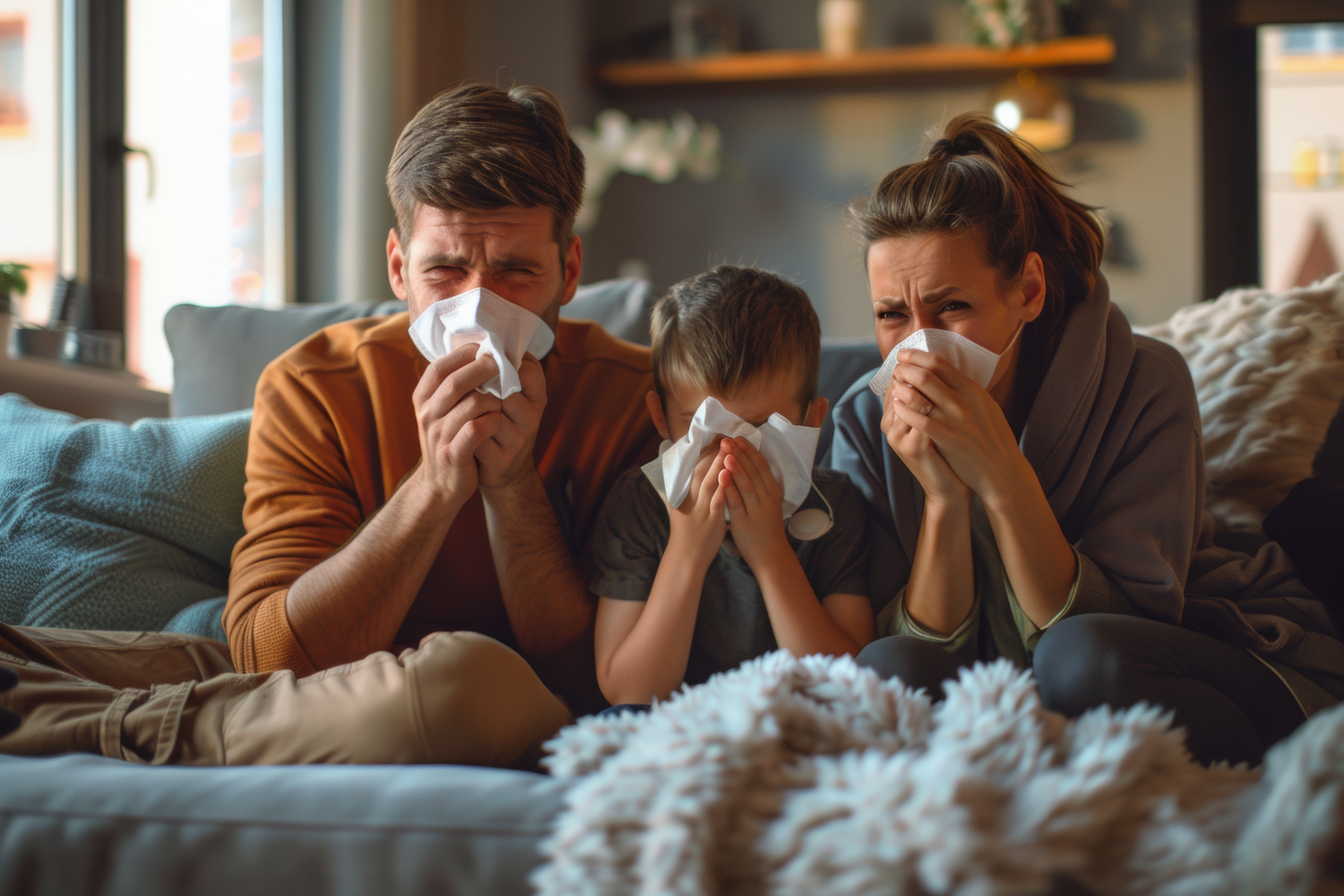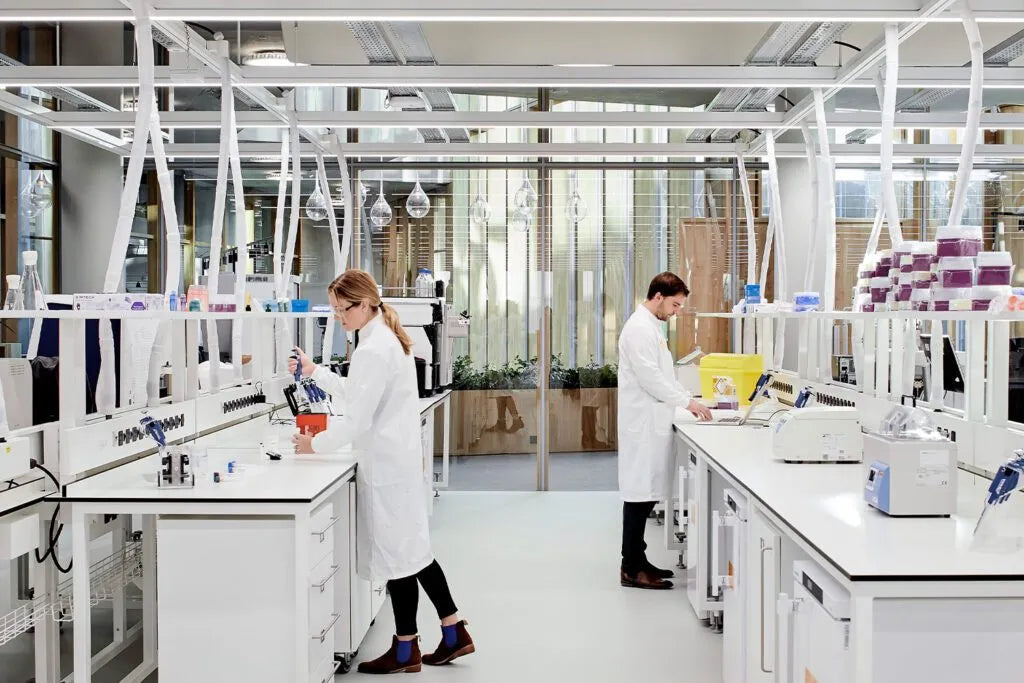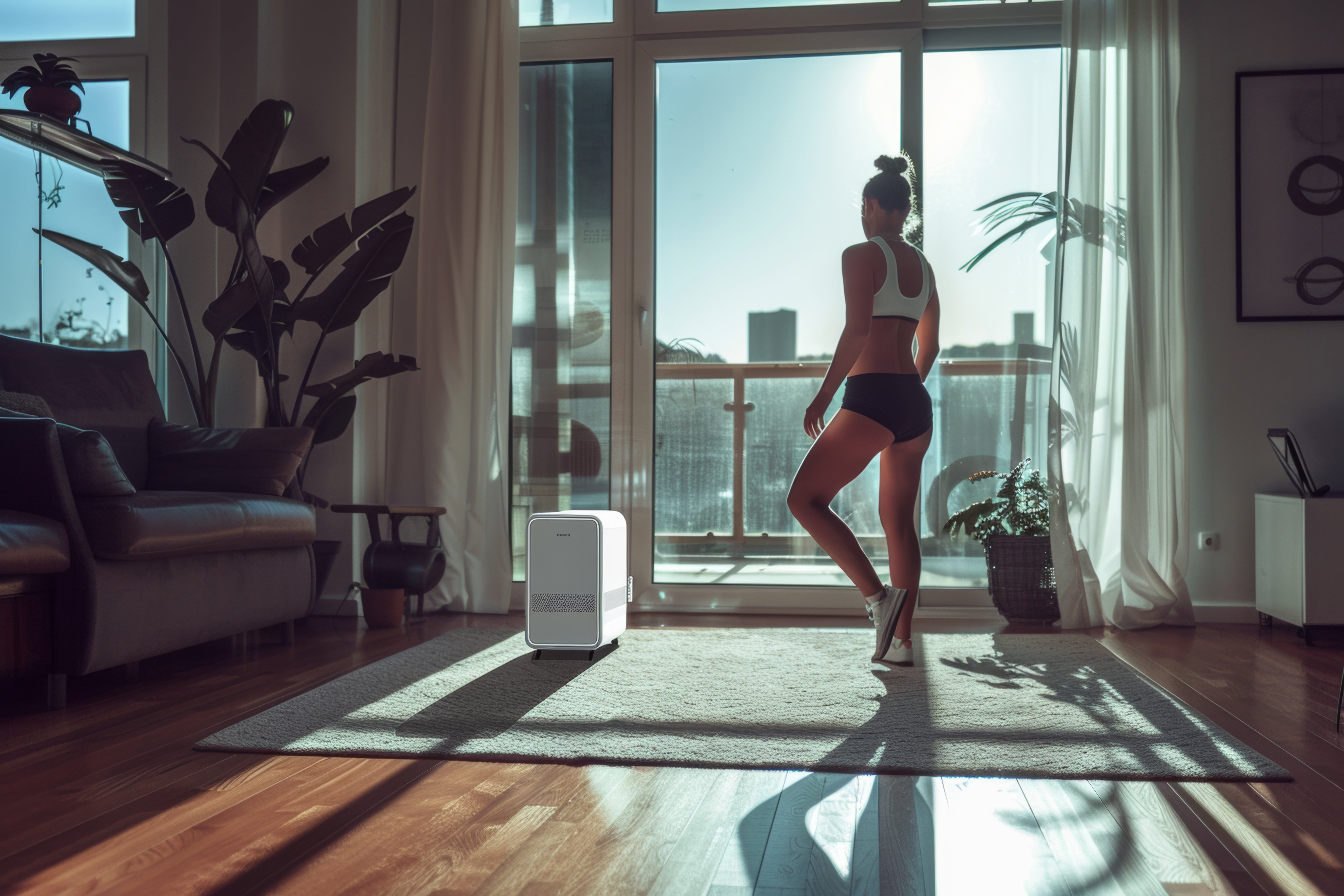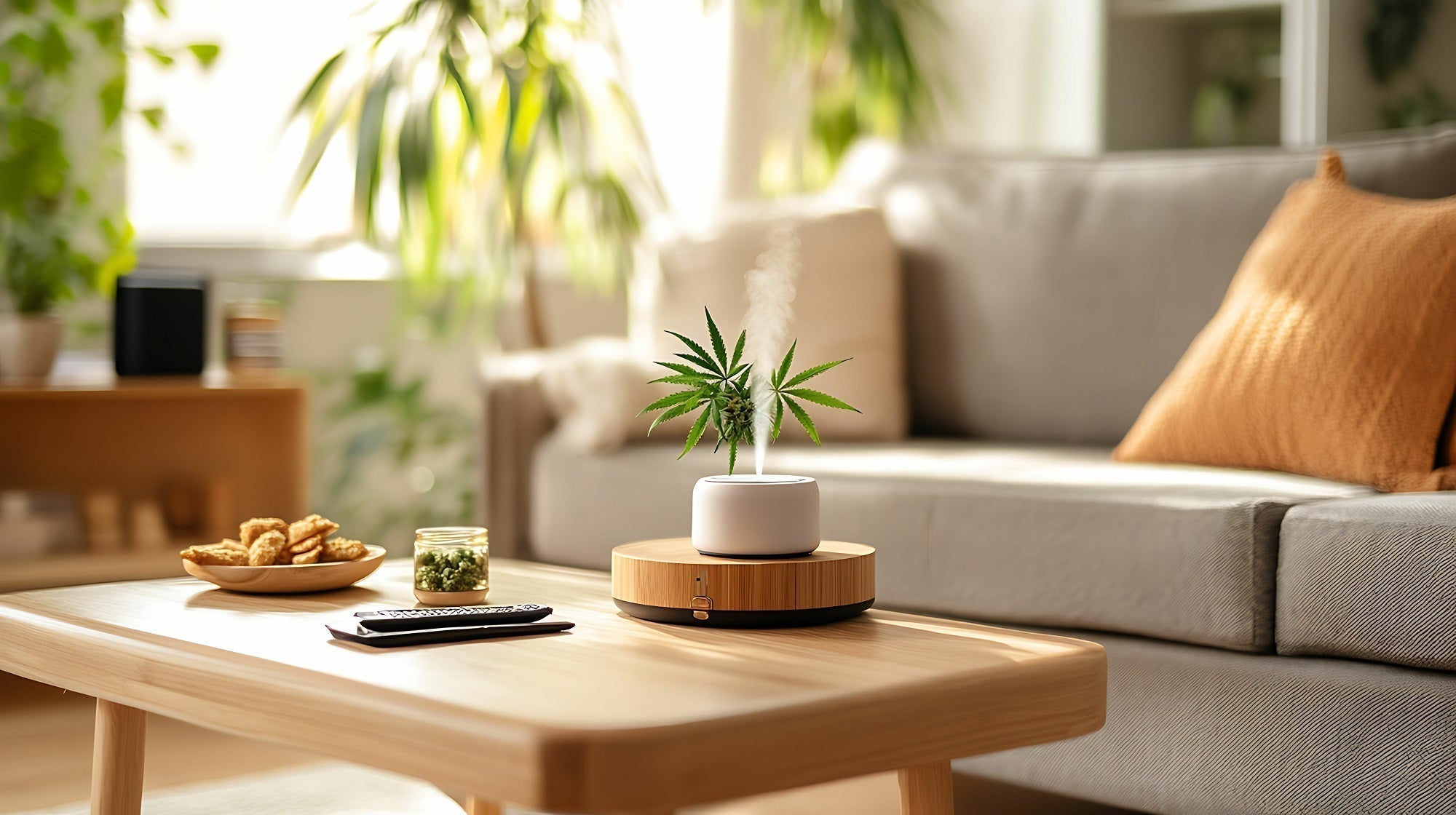Beyond Masks and Sanitisers: The Role of Air Filtration for Virus Protection

We’ve all been there–sanitising our hands, double-masking in crowded places, and wiping down every surface in sight. Since the pandemic, these habits have become second nature. But here’s a question: how often do we think about the air we breathe? The truth is, while masks and sanitisers offer an essential line of defence against viruses, they don’t address airborne risks once we're indoors.
Viruses, including the flu and COVID-19, can linger in the air for hours, even days, especially in enclosed spaces with poor ventilation. This is where air filtration for virus protection steps in. Air filters don’t just trap dust and allergens, they can actively remove airborne pathogens, reducing the risk of viral infections. In this blog, we’ll explore how air purifiers work to prevent viral infections and why they should be a part of your home and healthcare.
How Do Viruses Spread Through the Air?
Airborne viruses typically spread through droplets released when we cough, sneeze, talk, or even breathe. While larger droplets fall quickly to surfaces, smaller ones (aerosols) can remain suspended in the air for hours or days. This makes enclosed spaces, such as offices, classrooms, and public transport, particularly vulnerable to transmission.
While opening windows and improving ventilation can help, these aren’t always practical solutions. But don’t worry. Medical-grade air purifiers like MedicAir can help fight off airborne viruses in enclosed spaces, from homes to hospitals.
How Air Filtration Systems Help in Virus Protection?
Viral infection prevention air filter works by trapping and neutralising harmful airborne particles, including pathogens. But not all filters are created equal. Here’s how MedicAir air filters make a difference:
1. HEPA 13/14 filters
High-Efficiency Particulate Air (HEPA) filters, particularly HEPA 13 and HEPA14, can capture at least 99.97% and 99.995% of airborne particles at 0.3 microns (and even smaller) respectively. Since most viruses, including the common cold and flu, attach to larger respiratory droplets or dust particles, our medical-grade HEPA filters can effectively remove them from indoor air. Additionally, MedicAir filters have an antibacterial layer, which ensures the virus doesn’t multiply.
2. Safe UV technology
Our advanced air purifiers include UV light, which inactivates viruses by disrupting their genetic material. The best part? It does so without emitting ozone. When combined with our HEPA 13/14 filters, this technology enhances the efficiency of air filtration for virus protection.
3. Activated carbon filters
While primarily known for removing odours and chemical pollutants like volatile organic compounds (VOCs), activated carbon filters can also trap some virus-laden particles, improving indoor air quality. All our MedicAir air filters are layered with activated carbon that specialises in removing gases, odours, and VOCs from the air.
The Perks of Air Filtration for Virus Protection
Bringing home an air filtration system like MedicAir offers numerous benefits, particularly in virus prevention. Here’s why you should consider it:
1. Lowers risk of airborne illnesses
Since we don’t wear masks at home, we’re exposed to virus-carrying particles present in the air. MedicAir air purifiers effectively filter out these harmful particles, reducing the risk of viral infections for you and your family.
2. Protects vulnerable individuals
If you or someone in your family is immunocompromised, MedicAir air purifiers provide an extra layer of protection by removing harmful airborne pathogens. Cleaner air reduces your risk of potential infections.
3. Improves indoor air quality
Beyond viruses, MedicAir air purifiers remove up to 99.97% dust, pollen, and pollutants, creating a healthier breathing environment. By reducing airborne allergens and irritants, they help minimise respiratory issues, improve sleep quality, and enhance overall well-being.
4. Provides peace of mind
Our MedicAir air purifiers leverage ReAKT technology that constantly monitors air quality and adapts air filtration in real time. Knowing that your indoor air is filtered and purified round-the-clock adds an extra layer of protection, complementing other hygiene measures.
Final Thoughts
While masks and sanitisers remain essential, they are only part of the solution. Adding air filtration for virus protection creates a more comprehensive defence against airborne threats. Whether at home or in shared spaces, investing in a medical-grade air purifier like MedicAir, trusted by the NHS and WHO, is a proactive step toward healthier living. Take control of your indoor air quality today and create a safer, cleaner environment for you and your loved ones.
Recent Blogs
Independent Global Testing Confirms MedicAir’s Filtration Excellence
Two of MedicAir’s flagship systems – the MedicAir Pro and MedicAir Pro Max – have been independently verified for their outstanding performance in real-world environments, following rigorous testing conducted in Kuwait by international air filtration expert Dr Iyad Al-Attar.
Heatwaves and Indoor Air Quality: How MedicAir Safeguards Health and Productivity
The recent heatwave has brought swelteringly high temperatures across the UK, significantly impacting indoor air quality (IAQ) and indoor environmental quality (IEQ).
Why Indoor Air Quality Matters for Cannabis Grow Rooms
With MedicAir, you get more than just air purification–you get peace of mind, knowing your plants are thriving in a controlled, contaminant-free environment.


